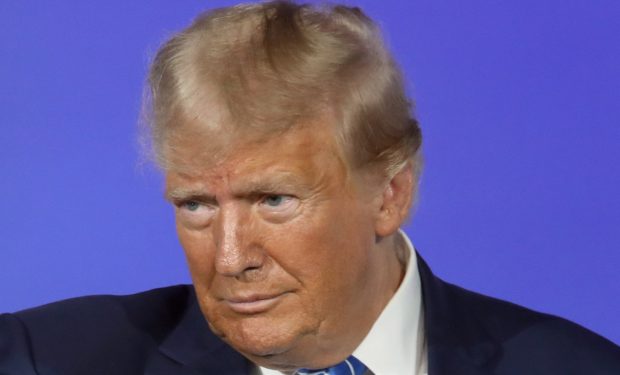Journalist, entrepreneur, and former White House intern Monica Lewinsky, no stranger to legal proceedings having been deposed by the Senate Judiciary Committee in 1999 during the impeachment of former President Bill Clinton, is following the criminal trial of former President Donald Trump, who was also impeached (twice).
Like many trying to battle through the disinformation being disseminated about the trial, Lewinski is seeking clarification regarding unanimity and Judge Juan Merchan‘s instructions to the jury.
On X, Lewinsky reached out to MSNBC legal analyst Asha Rangappa for clarification, writing: “… dumb legal question: when the papers talk about the verdict needing to be unanimous, does this mean the jury has to have drawn a G/NG conclusion on EACH count for the verdicts to hold? what if they are unanimous in decisions on only 17 counts? do those 17 G’s just evaporate?”
[Note: Conservative political pundits including Fox News’s John Roberts have misleadingly reported that Merchan “told the jury that they do not need unanimity to convict. 4 could agree on one crime, 4 on a different one, and the other 4 on another. He said he would treat 4-4-4 as a unanimous verdict.”]
legal twitter or @AshaRangappa_ or @neal_katyal … dumb legal question: when the papers talk about the verdict needing to be unanimous, does this mean the jury has to have drawn a G/NG conclusion on EACH count for the verdicts to hold? what if they are unanimous in decisions on…
— Monica Lewinsky (she/her) (@MonicaLewinsky) May 30, 2024
Rangappa replied to Lewinsky: “Not dumb. Unanimity required to reach a verdict for each count, either guilty or to acquit. If they are split on a count and cannot resolve, then they are considered ‘hung’ on those charges. Theoretically the D.A. could retry on those charges (but I doubt he would).”
Merchan’s jury instructions informed jurors: “Although you must conclude unanimously that the defendant conspired to promote or prevent the election of any person to a public office by unlawful means, you need not be unanimous as to what those unlawful means were.”
The judge explained: “In determining whether the defendant conspired to promote or prevent the election of any person to a public office by unlawful means, you may consider the following: one, violations of the Federal Election Campaign Act, otherwise known as FECA; two, the falsification of other business records; or three, violation of tax laws.”
Bradley P Moss, a Washington, D.C. national security attorney and partner at the Law Office of Mark S. Zaid, explains that “they [the jurors] have to be unanimous that Trump falsified the records and did so with the intent to commit another crime. They do not have to be unanimous on what the other crime was: that’s the rule under NY law.”
